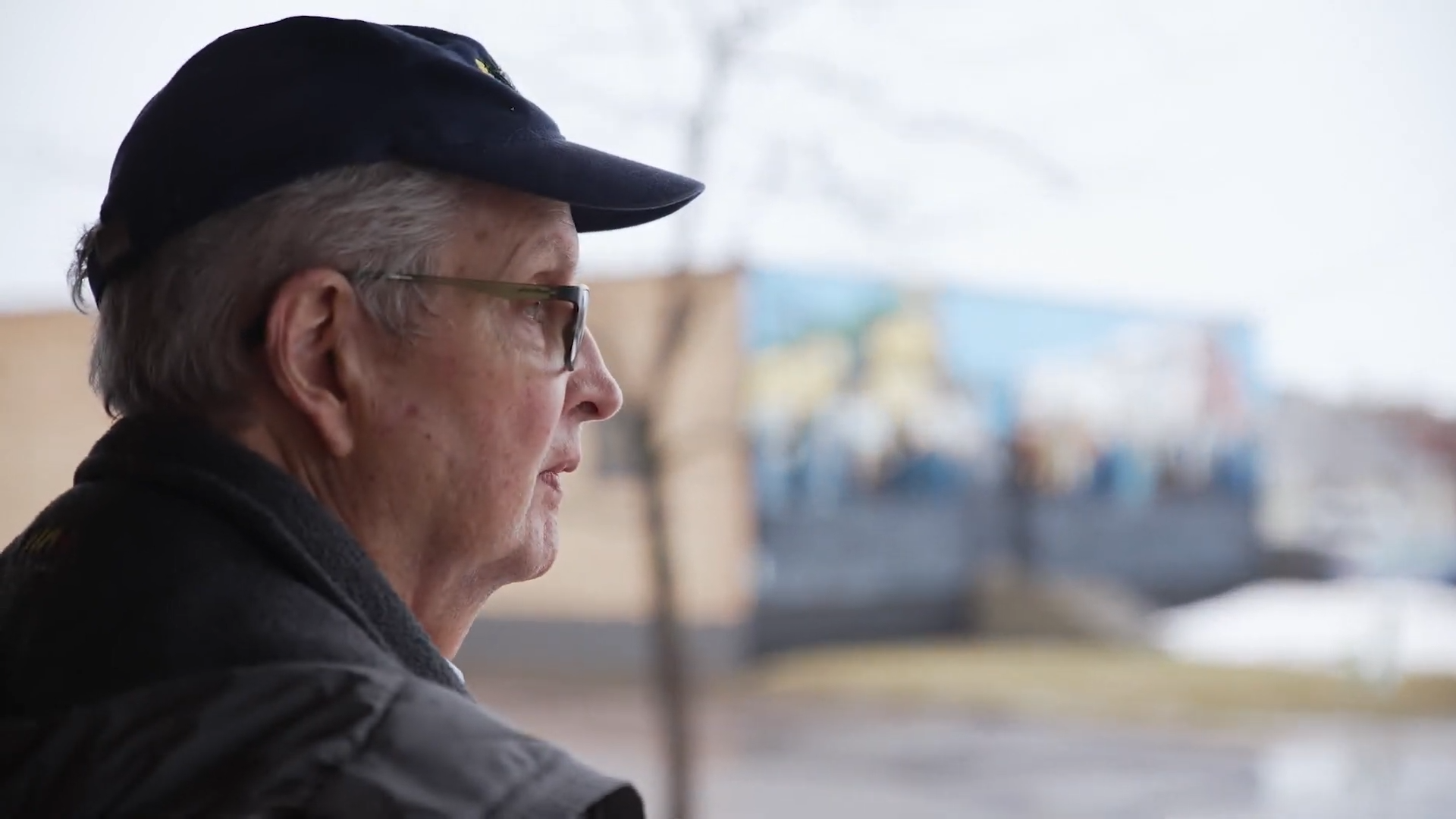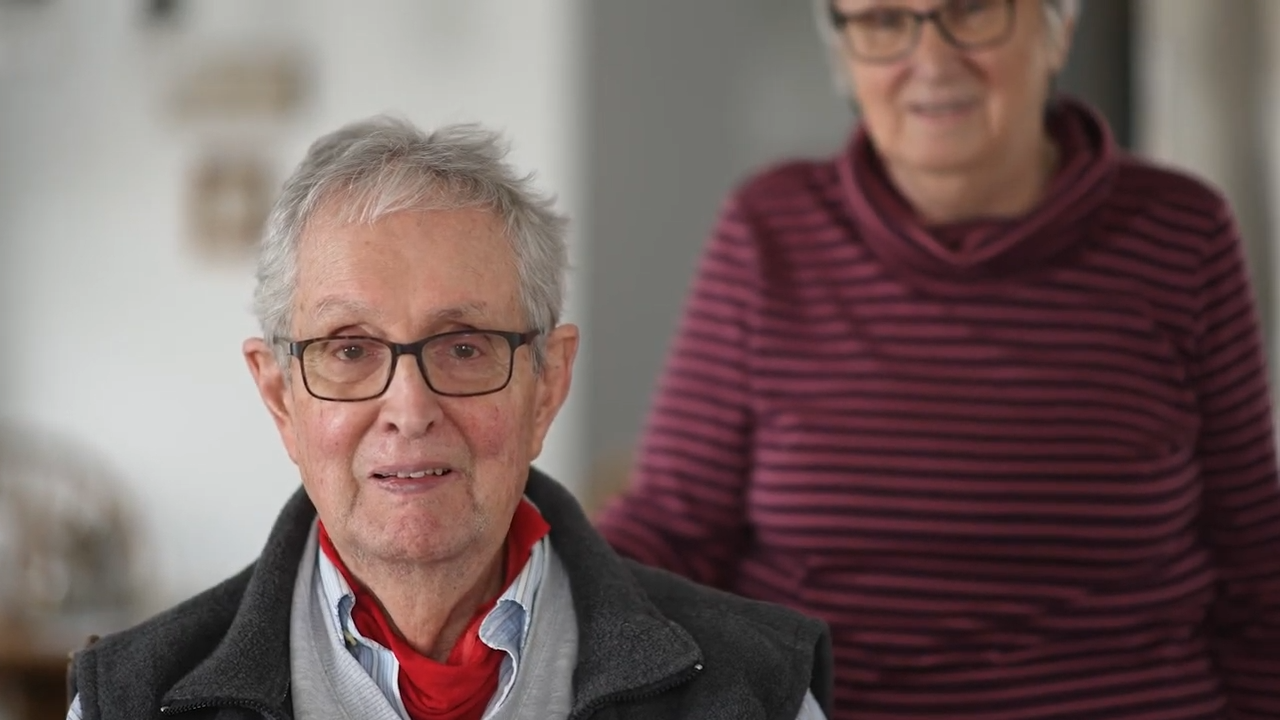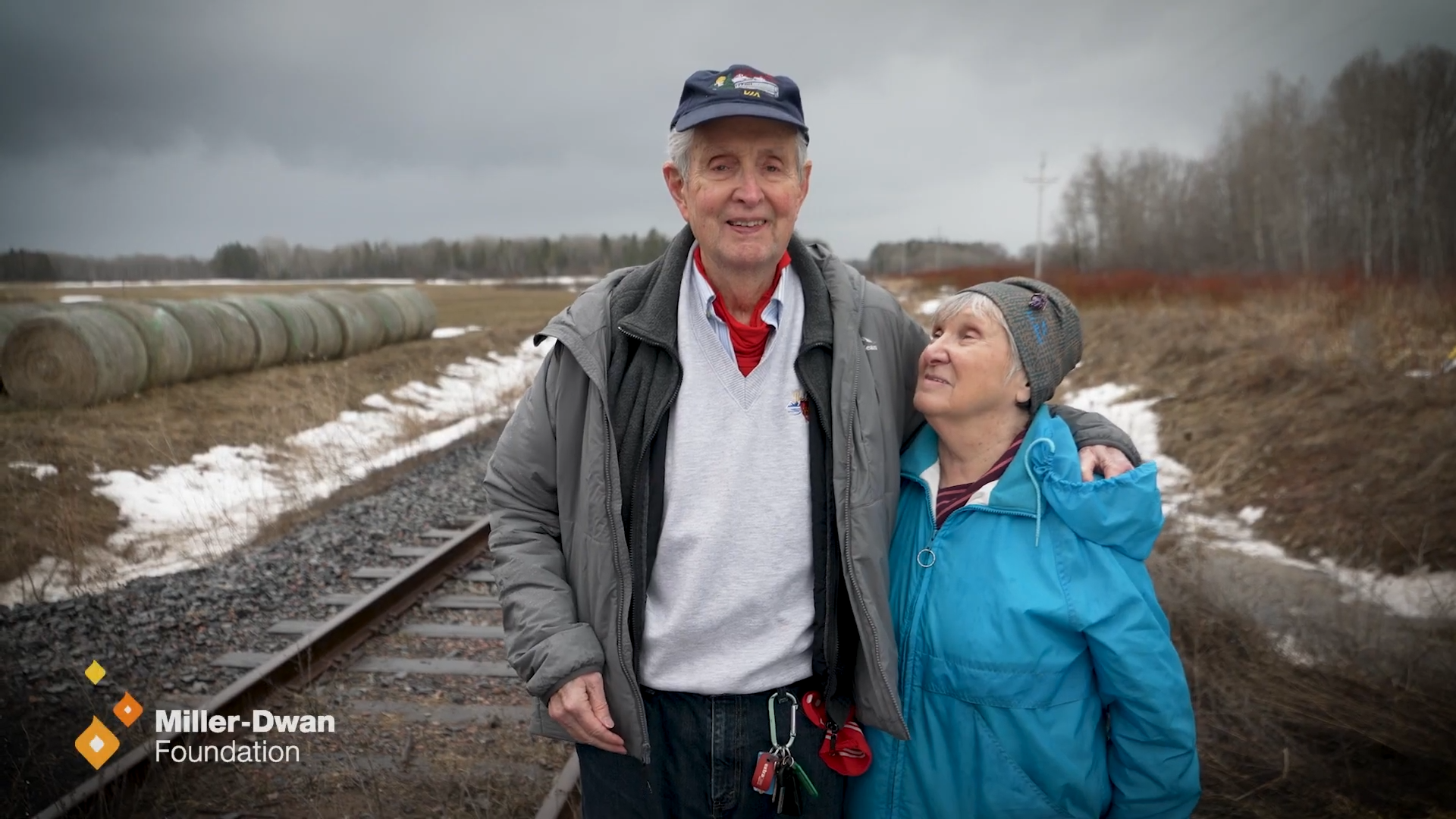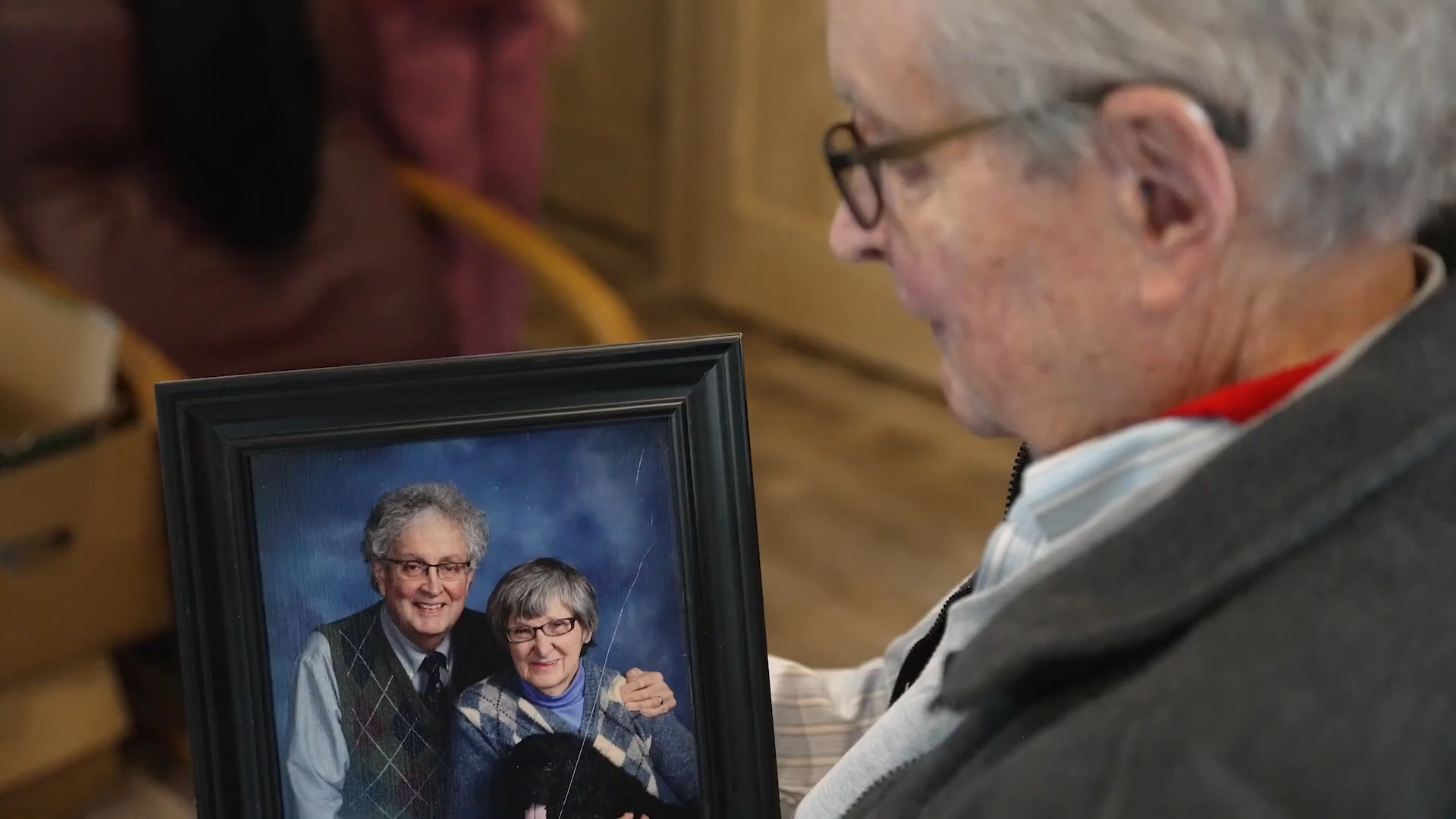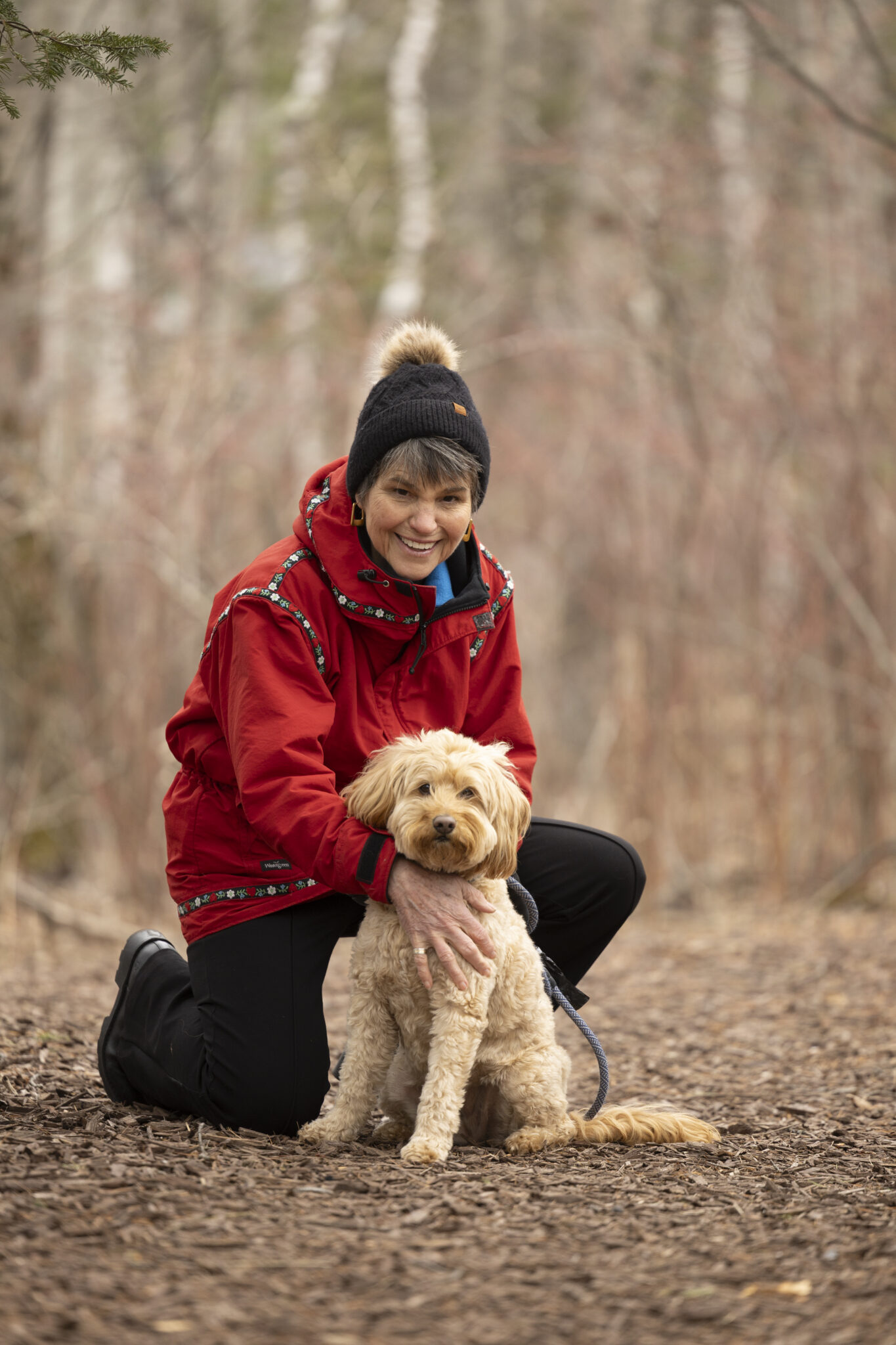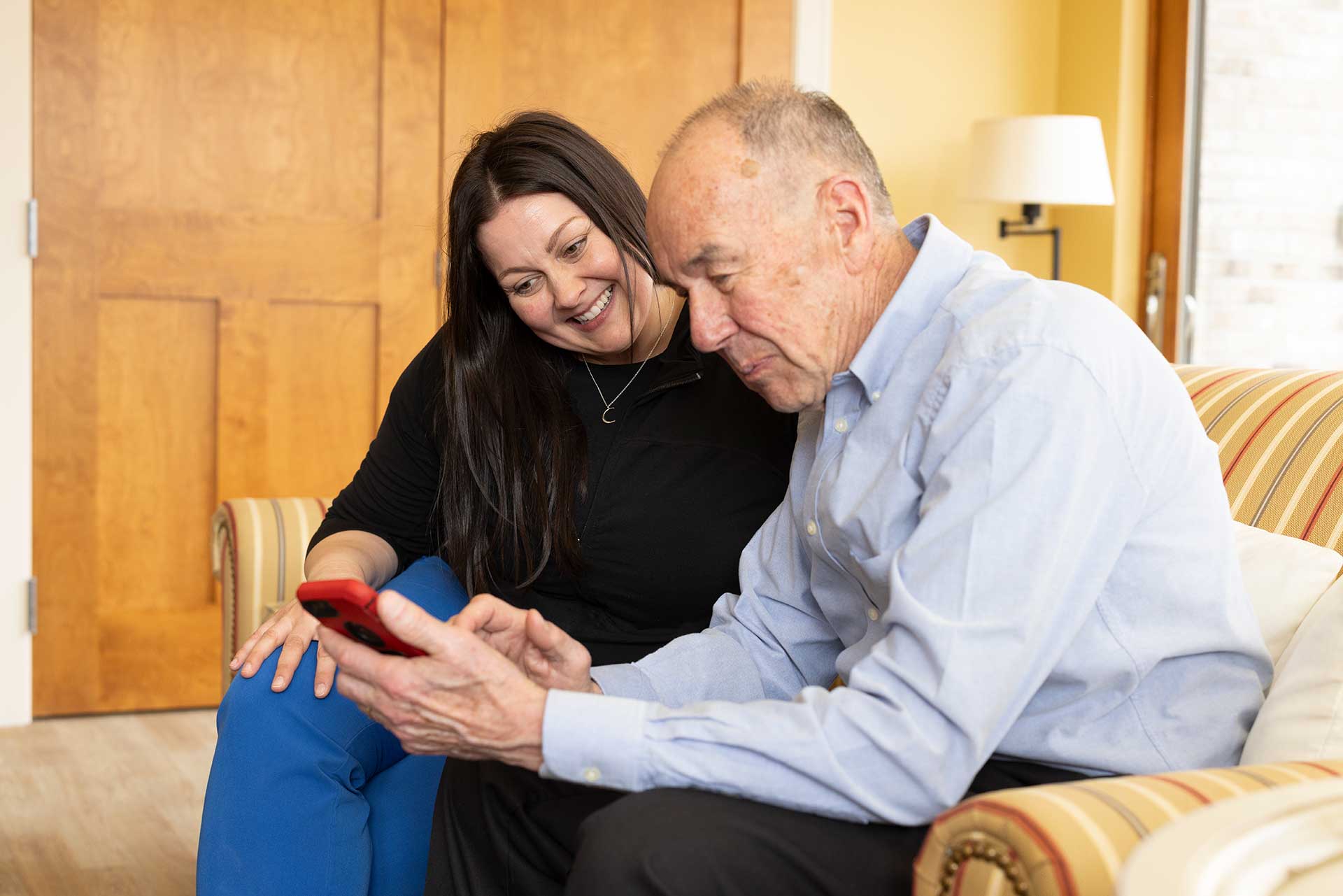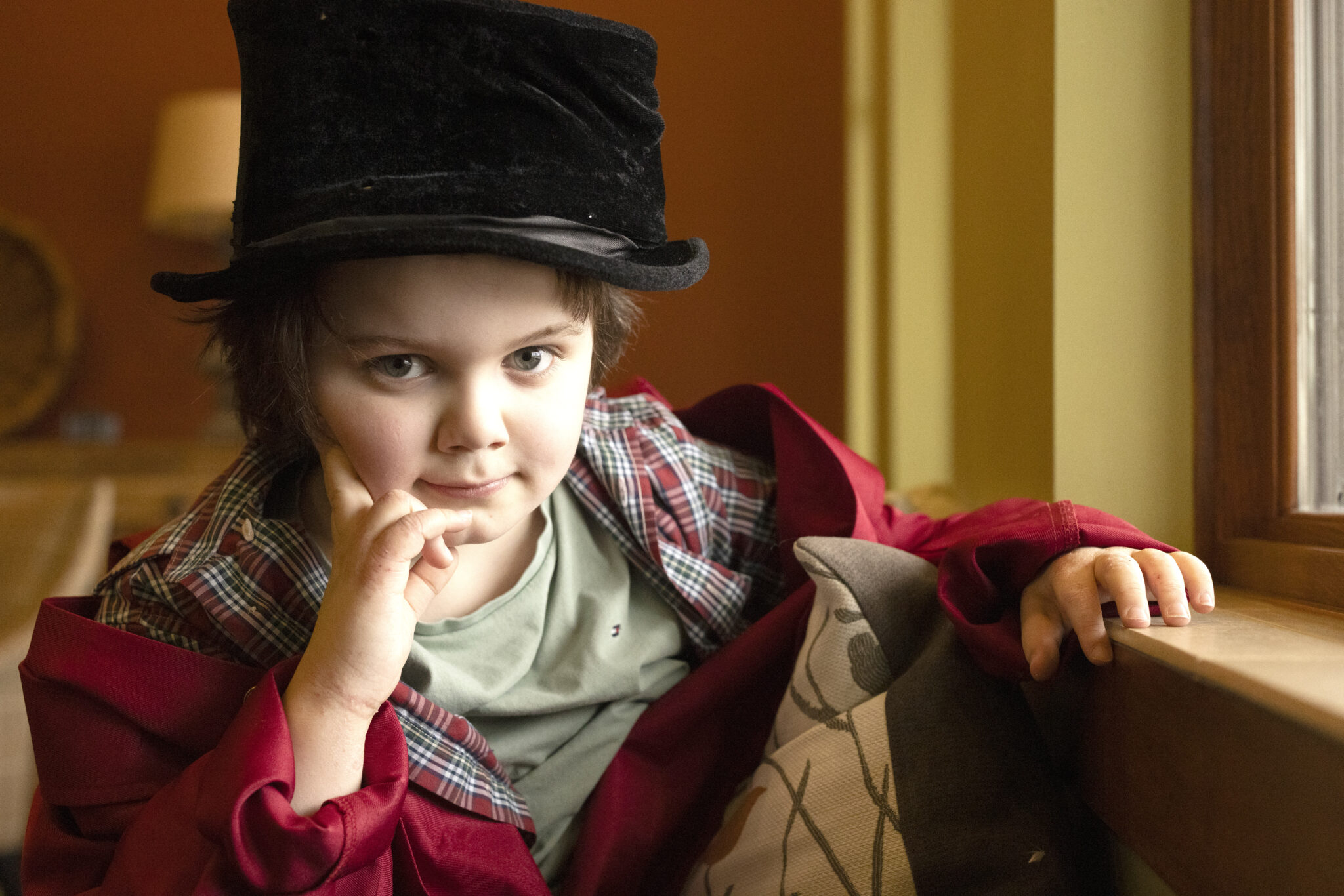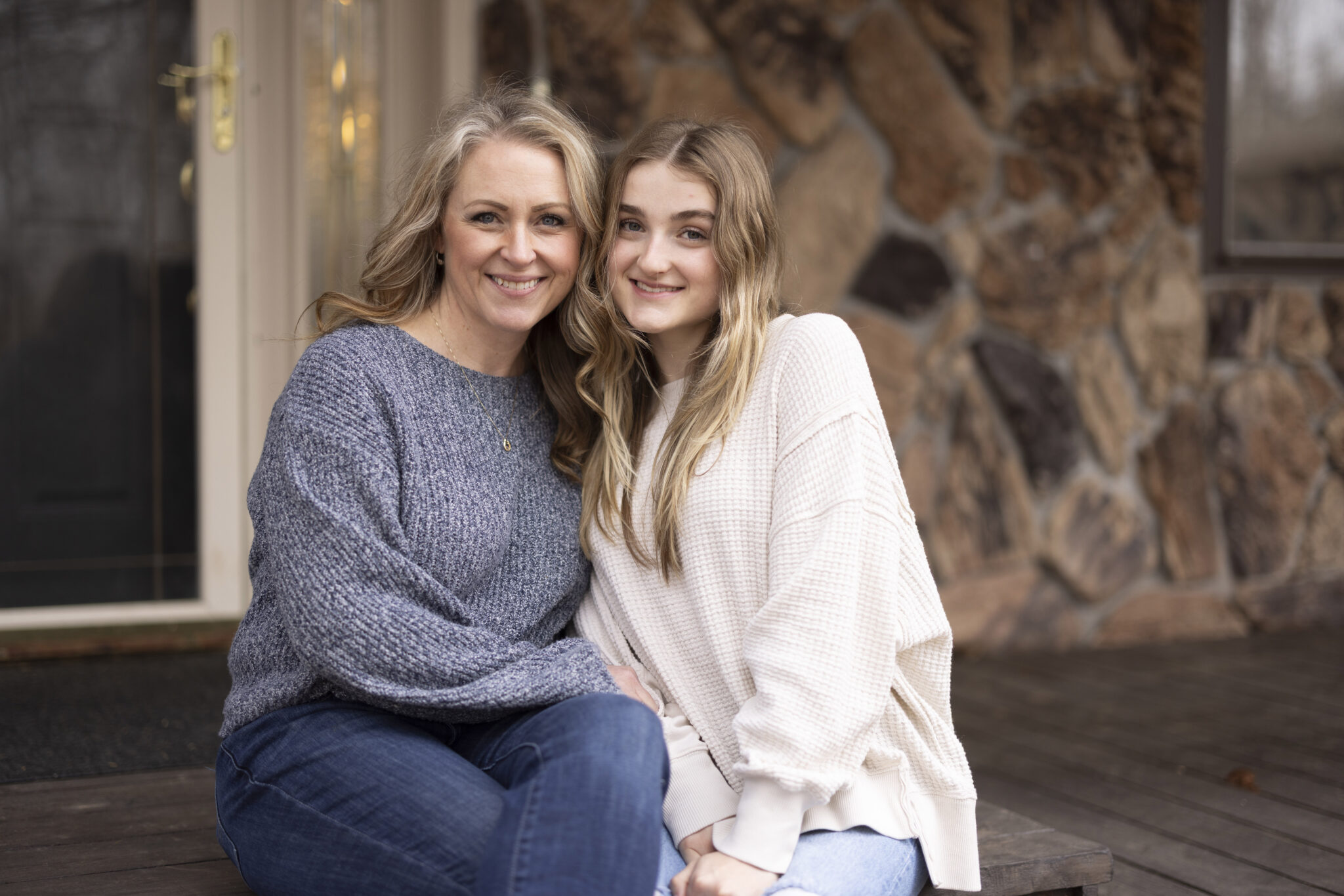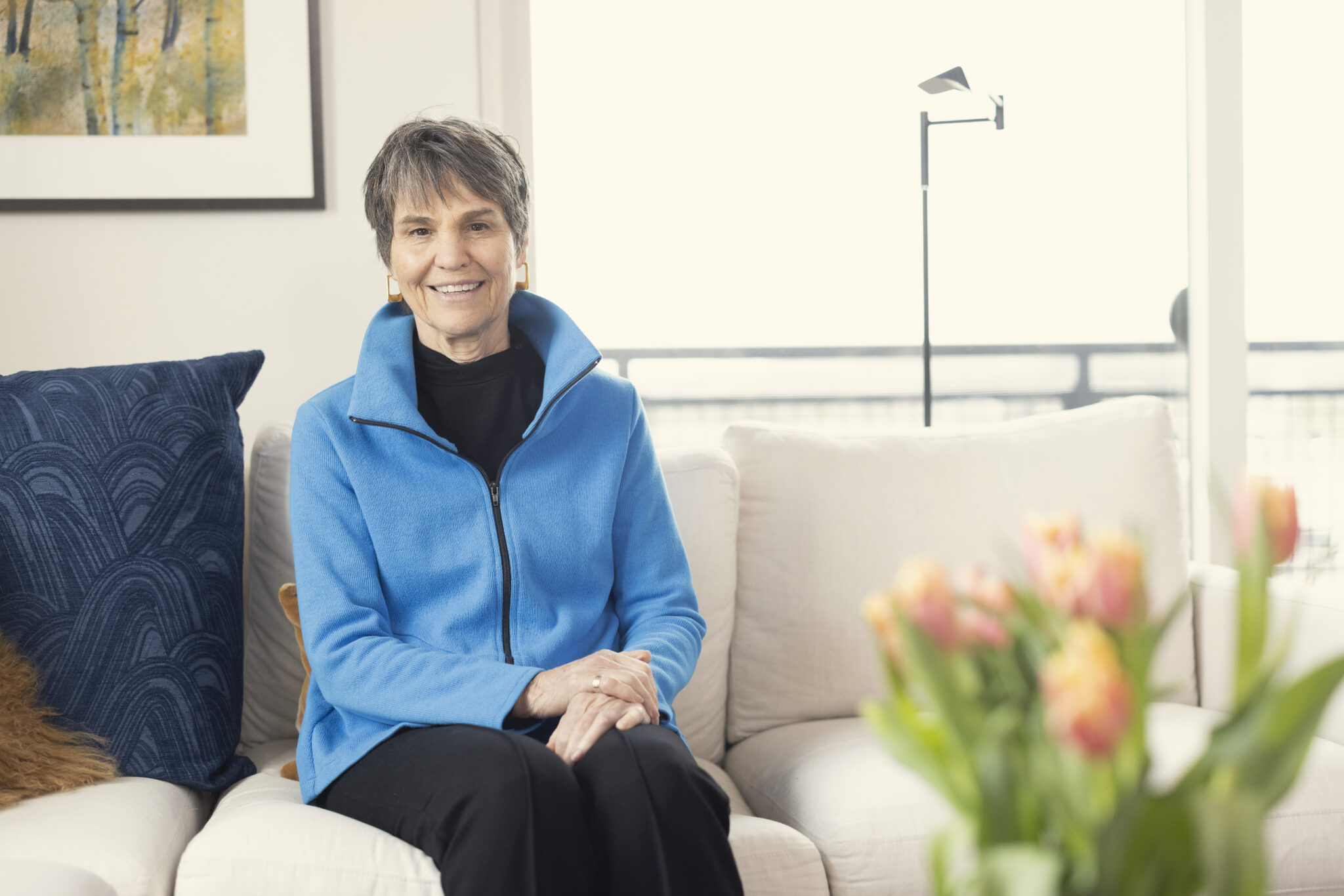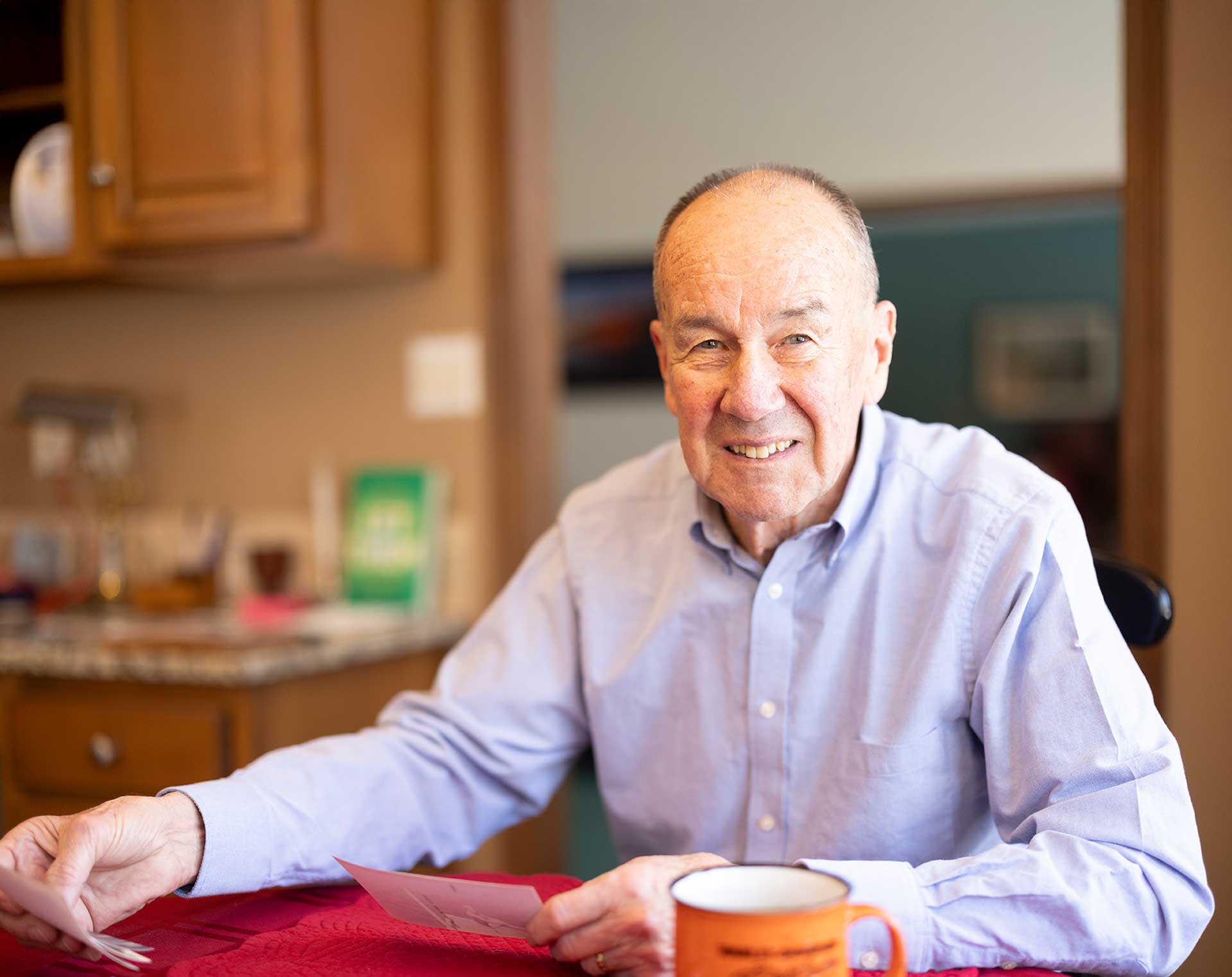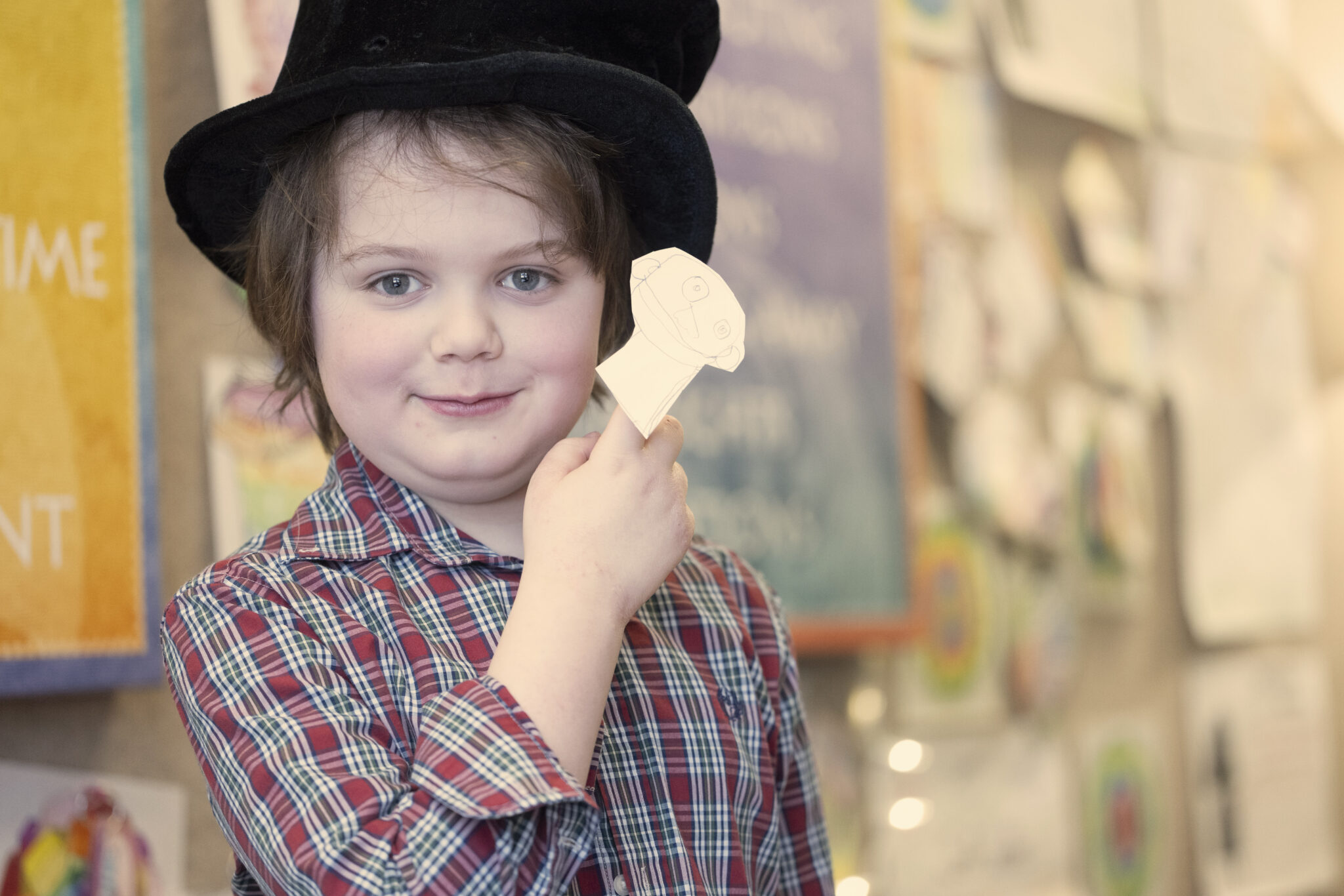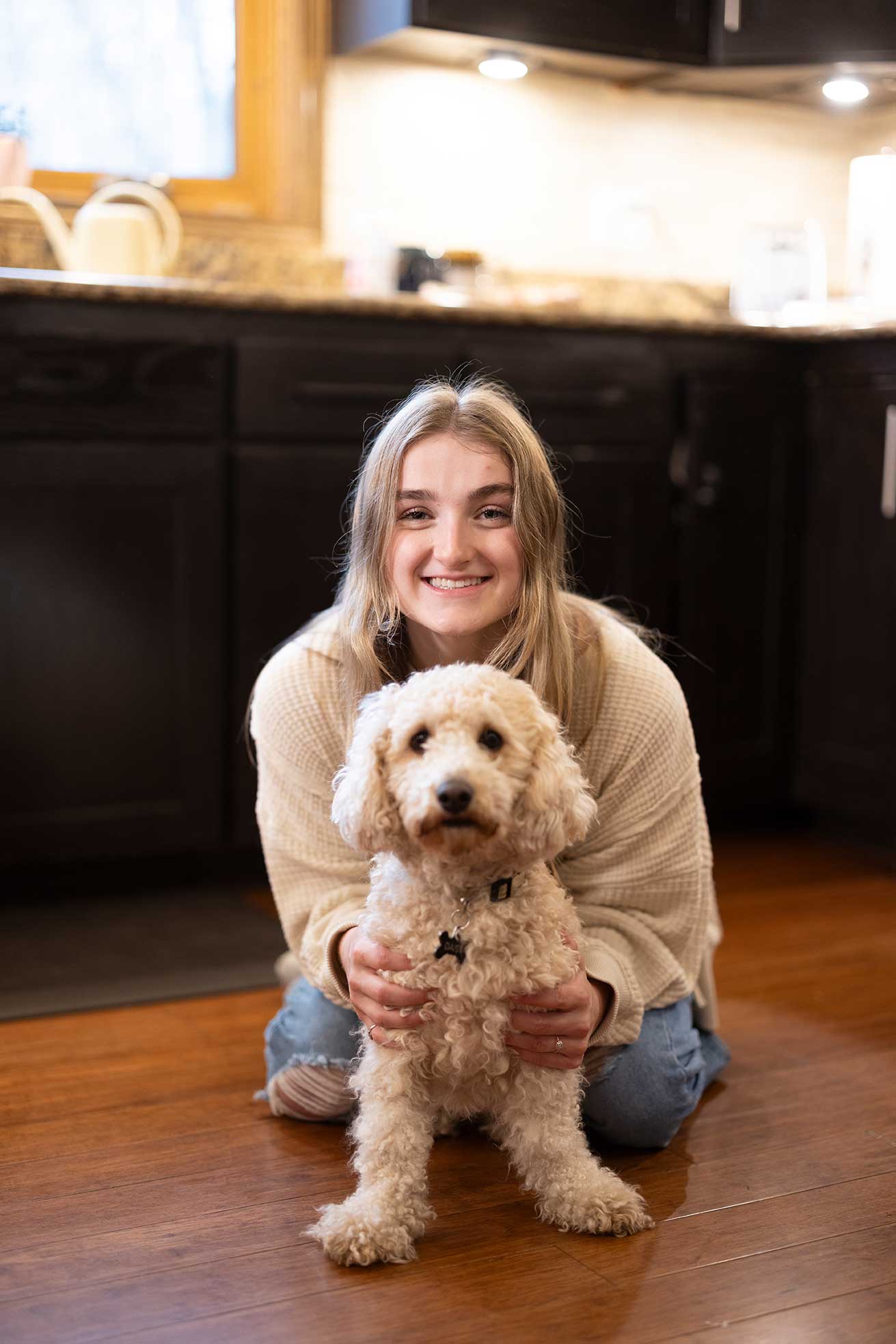“Recreational railroading is what I call it,” Eliot Haycock explains. “My favorite thing to do is ride railroad passenger trains around Canada, from Winnipeg to Vancouver and back. It’s beautiful wilderness country, and I just can’t get enough of it.”
“I’m definitely grateful to my wife for pushing me into this. You’re doggone right I had to apologize. She did the right thing, no question.”
—Eliot
Eliot is 78 years old (or 35, depending on whom you ask). He fills his days traveling and enjoying the outdoors with his wife, Naomi. For the past 40 years, you could find the Haycocks gathered around a fire at lakeside campsites from June until Labor Day. They were campground hosts at Fall Lake and Fort Wilkins Historic State Park for over 15 years.
When you’re together for a long time, you start to pick up on subtle changes in your loved one’s behavior. Maybe it’s not surprising then that Naomi first noticed something was wrong. Eliot’s family history of Parkinson’s Disease crept into her mind, and she pushed him to make an appointment after recognizing some of the signs. The idea was not well-received.
“I told her that when we get to the office, I’ll give the doctor about five minutes, and then I’m out,” Eliot says. That was before he met neurologist Dr. Amber Erickson. “Dr. Erickson knew how to handle guys like me. She was very kind, gentle, and respectful,” Eliot says. “And she got an hour out of me.”
Right away, Dr. Erickson referred Eliot to the BIG® and LOUD® programs at Polinsky Medical Rehabilitation Center. Diagnosed with Parkinsonism, Eliot worried about how much time he’d have. “I was concerned about what this might mean for us,” Naomi says.
A Parkinsonism or Parkinson’s Disease (PD) diagnosis can feel defeating and overwhelming, explains Amy Brown-Holappa, MA, CCC-SLP, a speech-language pathologist who works with Eliot. Having the support of a care team trained in evidence-based speech and physical therapy programs can give patients hope and guidance in a difficult time. Amy says she and her patients share a similar mentality: “We’re going to fight it as best we can, for as long as we can.”
To help stave off the disease’s progression, Eliot learned LOUD program exercises designed to improve vocal loudness, articulation, hoarseness, and swallowing and BIG program exercises through physical therapy to help recalibrate his movements and apply the right amount of effort. Both programs require a lot of repetition.
Eliot has done these exercises every single day since starting the program. “I think I missed five days in the past year,” he said. Dr. Erickson and Amy both told Eliot that beginning these exercises as soon as he did was very beneficial. And so, it turned out that Naomi had done something remarkable for him by recognizing the signs and encouraging him to go in right away. He, in turn, thanked her through his impressive, steadfast commitment to mobility and speech exercises. It’s what has kept him out of a nursing home and doing what he loves, he says.
“I’m so proud of Eliot for being so faithful and doing these exercises,” Naomi says. Eliot shared that gratitude with her. “I’m definitely grateful to my wife for pushing me into this. You’re doggone right I had to apologize. She did the right thing, no question.”
The pair moved into a one-story condo in Ashland, Wisconsin to be closer to his doctors. Eliot sees a speech-language pathologist once a year and Dr. Erickson every six months. He’s planning his next recreational railroading trip that will depart from Winnipeg. And he’s still doing his exercises every morning. Looking back on his diagnosis, Eliot says, “At the time I was hoping it didn’t mean my time would be short. And apparently, my time was not short because here I am, five years later, doing pretty good.”
Thanks to his dedication and the care provided by Polinsky Medical Rehabilitation Center, Eliot is ready for his next adventure.
There is no doubt in Eliot’s mind that he will soon get on the stunning passenger train, the Canadian, which he has ridden every year for many, many years.

